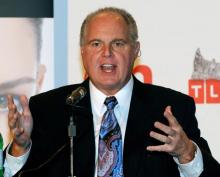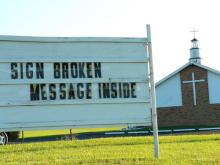Advertising

Every time I go to restock my face cream at the cosmetics vendor, inevitably the sales ladies point out the fact my skin is particularly dry. Oh wait, not just dry, they say, they are also seeing signs of crow’s feet and — gasp! — some dark circles under my eyes. They masquerade as skincare health professionals with fancy dermatology equipment to properly diagnose the ills of my skin. All this, of course, so they can sell me the magic anti-wrinkle cream. And do I buy it? I do. (Dang it, you weak-willed creature.)
I recently read a book titled, Winning the Story Wars by Jonah Sachs, who pinpoints this trend over the last hundred years of advertising coined “inadequacy marketing.” He summarizes this form of storytelling as follows:
“Inadequacy stories encourage immature emotions like greed, vanity, and insecurity by telling us that we are somehow incomplete. These stories then offer to remove the discomfort of those emotions with a simple purchase or association with a brand.”
The first step in adequacy marketing is to create anxiety.

Is Eve all about sex? Or might she want something else? Our popular imagination turns Eve into a receptacle for one set of our fantasies. Our fixation on Eve’s sexuality causes us to overlook the story’s major themes and what they might mean for our common life together. Indeed, biblical scholar Ken Stone shows that Genesis 2-3 has a lot more to say about food than it does about sex. Even if becoming “one flesh” is about sex, and maybe it’s not, there’s all kinds of references in the passage about what the first humans may or may not eat.
The story tells us directly what Eve wants. She doesn’t want to tempt Adam. And she doesn’t want a snake curling suggestively around her body. Eve wants wisdom.
And she gains wisdom.
Let’s review some of the overlooked details in this story.

I didn’t expect to get hit on during Super Bowl XLVIII.
I mean, I was expecting the usual stuff — the testosterone-fueled web hosting pitch, the adorable animals selling beer – but this was shameless. Someone really did their homework, because company after company turned up with things I like to hear: healthy families; cute biracial kids; a nation of immigrants; a thriving main street; victory for the marginalized; solving the world’s most pressing social ills. Check, check-check.
Progressive values, you are currently the it-girl for advertisement pickup artists. Enjoy it?
I, for one, do not.
Don’t get me wrong, commercials that celebrate our society as diverse and affirming are far more appealing than the advertising tropes we’re used to. But they also veil or flat-out misrepresent the structures and practices of the companies telling them. Without a significant shift towards justice on the part of these companies themselves, their social good stories shouldn’t charm us — they probably should leave us with a bad taste in our mouths.

If there is indeed a “War on Christmas,” those on the anti-Christmas side of the war have lost — big time.
The television pundits, conservative politicians, and talk-radio loudmouths who believe there is a “War on Christmas” should look around, withdraw their troops, and quit screaming. Because if there is a war on Christmas, Christmas has won.
As Christmas approaches, tens of thousands of churches around the country are planning Christmas services and expecting packed pews. Their choirs are rehearsing Christmas music; and church members have taken the Nativity scene figures out of storage and put them on church lawns. Children costumed as kings and shepherds are learning to sing “Away in the Manger.”
Christmas cards with manger scenes are speeding around the country through the U.S. Postal Service or in the form of online animated greetings that play “Silent Night” and show the wise men following the star to Bethlehem.

I hate Abercrombie & Fitch.
It all started a few years ago. A member of my youth group worked at one of their stores in a Chicago suburb. I was minorly troubled that she was employed at the store. But what really flamed my loathing for Abercrombie was when they asked her to model their clothes for their catalogue. She told me about their offer and I responded in the only way an over-protective youth pastor could:
“NO! Absolutely not! No way in Hell are you doing that!!!”
I don’t think that Abercrombie is evil per se. I only hate them because they stand for everything that I’m against!
Over the weekend, BusinessInsider.com published an article titled “Abercrombie & Fitch Refuses to Make Clothes for Large Women.” The article included a comment made by Abercrombie CEO Mike Jeffries in 2006. He described his business strategy by stating:
In every school there are the cool and popular kids, and then there are the not-so-cool kids. Candidly, we go after the cool kids. We go after the attractive all-American kid with a great attitude and a lot of friends. A lot of people don’t belong [in our clothes], and they can’t belong. Are we exclusionary? Absolutely. Those companies that are in trouble are trying to target everybody: young, old, fat, skinny.

Note from Jim Wallis: On October 25, Troy Jackson wrote this piece for God’s Politics. He called for a “media fast” on November 2 — today. I thought this was a compelling idea so I am putting it out there again. So Turn Down the Noise: Fast, Pray, and Vote — today or one of the days before the election. Read and heed.
I was a teenager when the rock and roll "documentary" Spinal Tap premiered. Like many in my generation, I love the scene when Spinal Tap member Nigel Tufnel (Christopher Guest) proudly shares with reporter documentarian Marty DiBergi (Rob Reiner) that the band's special amp has dials that go up to eleven:
"You're on ten here, all the way up, all the way up, all the way up, you're on ten on your guitar. Where can you go from there? ... Nowhere. Exactly. What we do is, if we need that extra push over the cliff, you know what we do?" Marty responds, "Put it up to eleven," and Nigel emphasizes the point: "Eleven. Exactly. One louder."
This election season, I have come to believe that Nigel was on to something. You see, here in Ohio we have seen political advertising go "one louder" and receive "that extra push over the cliff." The NOISE is so deafening, I'm convinced the campaigns and super PACs have discovered a way to turn the dial all the way up to 11!
Piano-playing cats or union organizing drives—Google and Facebook don’t care. They just keep a sieve in the flow to collect information that can be sold to advertisers.

Rush Limbaugh’s verbal attack against Georgetown law student Sandra Fluke last month hasn’t fared too well for his program; his advertisers have pulled out left and right since the now infamous comments. Everyone from McDonalds to Radio Shack to Ace Hardware--a total of 140 advertisers--specifically asked that their advertising not be aired during Limbaugh’s show. Some are going so far as to create "buffer zones," ensuring their ads don't air within a one- to two-hour window before and after Limbaugh's show.
Limbaugh doesn’t seem to be too concerned about the loss. As Hatewatch reports, he said it’s like “losing a couple of French fries in the container when it’s delivered to you in the drive-thru. You don’t even notice it.”
Enter the people of Westboro Baptist Church--the Topeka, Kan.-based church probably best-known for picketing at U.S. soldiers' funerals. Westboro leadership sees Limbaugh's comments as an opportune time to advertise on the show.

NEW YORK — Did leaders of the Southern Baptist Convention hurt their missionary cause by opting not to change the denomination's name to something a bit more, well, marketable?
Maybe, but as the advertising executives of Madison Avenue here could attest, as tempting as it is to try to solve a missionary slump with a marketing campaign, religious groups — like commercial businesses — should think twice before undergoing a brand overhaul.
After months of deliberations, an SBC task force on Feb. 20 recommended against trying to re-brand the denomination, an idea that has been bandied about for more than a century.
Proponents of a change made a good case: for a denomination that was born in 1845 out of a defense of slavery, the name has since saddled Southern Baptists with a problematic name and historical baggage.
Super Bowl inforgraph, and a collection of notable commercials from years past. Take a look at radio Tanzania, and see a baby with some serious ping pong potential. And finally, take a look at some good music that released this week.

I know why those polar bears you're seeing everywhere look so pensive. They're thinking not just about coke (a byproduct of coal used in industry), but more generally about the massive use of dirty coal — used to make nearly half of all U.S. electricity (while renewable sources account for only about a tenth).
They're thinking about how the U.S. and the rest of the world's decades of reckless fossil fuel use keep ratcheting up greenhouse gasses in the atmosphere, causing Arctic ice to melt even faster than expected, and threatening them and all their polar bear friends. They'd like a cold one, all right — a cold Arctic, the way their home should be.
The Super Bowl is right around the corner, which means tons of sweet commercials (OK GO among the most recent buzz), but more importantly, Puppy Bowl VIII. Also in today's links: Stephen Colbert chases Jon Stewart around NYC, and the basics behind the new alternative activity known as hockern, or extreme sitting. Plus bits on David Lynch, Ira and Philip Glass, Arrested Development, and the 2012 Light Festival.
Editor's Note: In a recent New York Times op-ed, Nicholas Kristof slammed Village Voice Media’s Backpage.com for refusing to shut down its adult services section, which has repeatedly been linked to the sex trafficking of young girls. Check out a sneak preview of Associate Editor Zab Palmberg’s forthcoming piece in the March issue of Sojourners Magazine about the faith community’s response to Backpage:
The Internet makes it easier to sell your old bicycle — but, as a growing interfaith coalition of clergy is emphasizing, it shouldn’t make it easier to sell children for sex.
Two years ago, under pressure from anti-trafficking activists and 17 state attorneys general, Craigslist shut down its “adult services” section. Now, researchers say, the leading online purveyor of “adult” classified ads — which, as numerous criminal cases have shown, include ads pimps use to traffic children they have entrapped — is BackPage.com, owned by Village Voice Media.
President Obama wishes Betty White a happy 90th birthday, Will Farrell's homemade commercials for Old Milwaukee, contest for Anne Rice's new novel, Megadeath bassist to become ordained Lutheran minister, and more.
All the hype about SOPA, dogs bark to the tune of Darth Vadar, debunking myths about homeschoolers, Tim Tebow visits Sin City, innovative musical projects, extreme skateboards, the day the LOLCats died and more.
Polaroid camera are back on the market, apocalypse survival guide, Jack Kerouac for bros, the NBA begins using 3D graphics, the hit show Portlandia, James Franco's new film, classic album covers are given a clip art makeover, and more.
Lowes pulled its ad dollars from a show that aims to tighten the tapestry we call America because of a faux controversy drummed up by a hate group that said, through its claims of “propaganda," that it's not possible for Muslims to be American.
But the fabric of our nation exists because of the genius of our nation’s founder, who, in the very first amendment to our Constitution, protected the integrity of religion by forbidding the establishment of any one religion as the religion of the state.
In every single society before the founding of our Union, religion and state were married. History has taught us that religion co-opted by the state loses its integrity and its prophetic power.
Ours was a grand experiment that built America into a grand tapestry of ethnic and religious groups that thrive side by side in relative peace—more so than in any other nation in the world.

Rowan Williams Says Jesus Would Be Siding With Occupy Movement; Too Much Focus On Money Destroys The Environment, Says Cardinal; Presidential Politics And Religion (VIDEO); Bring Them Home—Now; The Ad War Heats Up: How Religion Is Playing In Iowa; Obama To Durban: ‘We Must Not Give Up’; Occupy San Francisco Encampment Cleared By Police In Overnight Raid.
The Norton commercial says explicitly what most advertisements only imply.
You are the things you own.
Your identity is the stuff you have.
Your worth is what you own.
The first few nights weren't so bad. It was on the fourth night, the night it rained, that it got to me. I had just spent the past week sleeping on the sidewalk in front of the Illinois state Capitol building in Springfield. Throughout the week, young people of faith, college students, as well as homeless and formerly homeless youth traveled from Chicago to Springfield. Some slept on the sidewalks at night, and others came solely to lobby their legislators. We were all there for the same reason -- because each year nearly 25,000 youth experience homelessness in the state of Illinois. Not only were there not the resources to help these youth, but most legislators and most of the general public didn't even realize the problem existed.
In the past few weeks, I've written about a lot of full-page ads. This full-page ad is different. Too often, homeless youth have been invisible. The Ali Forney Center, a service provider for LGBT homeless youth, has a full-page ad in this month's issue of Sojourners magazine. GLAAD, the Gay and Lesbian Association Against Defamation, connected the Ali Forney Center to Sojourners, as a part of an advertising campaign the Ali Forney Center is running. The ad highlights that up to 40 percent of homeless youth identify as lesbian, gay, bisexual, or transgender. I have talked with many teens who became homeless because they were kicked out of their homes or ran away from abuse by their parents because of their sexual identity. After their homes became dangerous, they went to the streets, where many were attacked and some were trafficked or forced into prostitution.